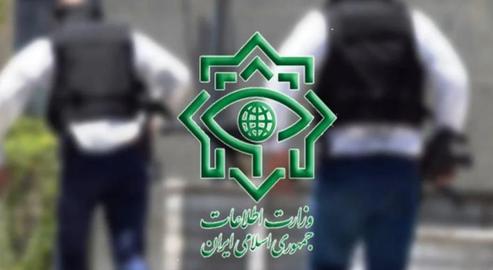In just a few short hours, on Tuesday at 5pm Tehran time, the national football teams of Iran and South Korea will go head to head in the fourth match of the final stage of the 2022 Qatar World Cup qualifiers.
Iran’s Team Melli is currently at the top of the table, with three victories and nine points already secured. Under the still-relatively-new management of Dragan Skocic, the team defeated Syria 1-0 in its first match at Azadi Stadium, going on to beat Iraq 3-0 in Doha before finally defeating the UAE 1-0 at home.
South Korea is second in Group A, with two wins and one draw for a total of seven points. The team managed a goalless draw in its first game against Iraq, but then beat Lebanon 1-0 at home followed by Syria 2-1.
Today’s match will be the most tense of Iran’s run in the 2022 Asian qualifiers so far. Apart from South Korean misgivings about the stadium and the presence of a referee who has a bad rep in Iran, it will also be politically fraught. After the regime promised to open up the match to women, the doors were closed to spectators again at the eleventh hour, for as-yet unexplained reasons.
Korean Commentators Hope for Respite in ‘Low-Oxygen Hell’ Stadium
South Korean media outlets have rather dramatically dubbed Tehran’s Azadi Stadium "hell" and "the cemetery for guest teams”. Iran and South Korea have faced one another a total of 31 times at official and friendly matches, winning exactly 33 goals each, with Iran’s share of victories running to 13 and South Korea nine. But not once has the South Korean national team won in Tehran. So far it has lost five times, and drawn twice.
Most fans and pundits put this down to the well-documented psychological effects of home vs away games on players. But the news website Naver, a spinout of the South Korean search engine of the same name, had a different explanation: "Azadi Stadium is located at an altitude of 1,273 meters above sea level,” the site recently asserted, “and the lack of oxygen and unfavorable turf impose an additional physical burden on South Korean players, who are not familiar with these conditions.”
The condition of the pitch at Azadi Stadium has previously drawn criticism from Iran’s own national team coaches, including Carlos Queiroz and Marc Wilmots, and the altitude would indeed be different to what many players are used to.
But this time, there will be a critical difference: the total absence of spectators. On Sunday the Iranian Football Federation abruptly announced that the game would be played behind closed doors. No official reason was given in the statement carried by IRNA, but it came days after repeated calls – by Iranian state media outlets as well as the international community – for women to be allowed in to watch the game.
The South Korean news website Star shared the news under the headline “Catastrophe is Over”, describing the move as a “special gift” by Tehran to the South Korean national team. The presence of Iranian spectators, it was posited, had put additional pressure on the away team; this time, things might be different.
Ahmad Al-Kaf; A name we do not have good memories with
The Asian Football Confederation (AFC) has selected the 38-year-old Omani referee Ahmed Al-Kaf to officiate Tuesday’s match. Iranian fans have few good memories of Al-Kaf; many believe he has made a number of on-pitch mistakes in the past, to the sole benefit of Arab teams.
In 2017, Al-Kaf, refereed a match between Iran’s Persepolis and Saudi Arabia’s Al-Hilal, in which he awarded a contested penalty to the latter. Minutes later, he seemed to ignore a clear penalty error that would have favored Persepolis, removing Iran at a stroke from the Asian Champions League.
Al-Kaf also came to Tehran in March 2019 to referee a game between Esteghlal and Al-Ain from the UAE. During this match, he disregarded a penalty opportunity for Pejman Montazeri and then disqualified a goal by Mohammad Daneshgar in the final few minutes of play. The end result was a 1-1 draw.
Iranian football fans associate Al-Kaf with a succession of other, bitter defeats. These include Esteghlal Khuzestan losing to Lekhwiya Qatar, two defeats of the Traktor team by Egypt’s Al-Ahly and Saudi Arabia’s Al-Ittihad, Persepolis’s defeat at home by the Japanese Kashima Antlers, and Esteghlal’s defeat by Uzbek team Pakhtakor FC, which also saw Iran eliminated from the Asian Champions League. The only time Iran has won a game under Al-Kaf’s supervision was in 2017, when Iran beat Uzbekistan 2-0, during the 2018 Moscow World Cup qualifiers.
Deception, lies and contradictions; The doors of the stadium remained closed
The fateful match in March 2019 between Esteghlal and Al-Ain, overseen by Al-Kaf, was also the same one that Sahar Khodayari, known as Blue Girl, tried to watch by entering the stadium disguised as a man. Khodayari was arrested and threatened with a six-month prison sentence. That September, the 29-year-old set fire to herself in front of a Tehran courthouse, and died from her injuries a week later.
The Islamic Republic has made repeated promises to FIFA that it will revise its ban on women attending football matches. This time around, the pressure was immense: on September 19, FIFA president Gianni Infantino told Iranian Football Federation chief Shahaboddin Azizi Khadem the stalemate was “unacceptable” and FIFA expected to see “positive change” come Iran’s next home match in October.
In early October, the National Coronavirus Headquarters had duly agreed that 10,000 male and female spectators could watch the match at Azadi Stadium: a promise now broken at the eleventh hour.
IranWire sources have reported that Azizi Khadem really did hope to obtain a permit for some women to attend, but security agencies, chief among them the Tehran Provincial Security Council, were strongly opposed to any change to the status quo.
In order to use the pandemic as a pretext – rather than admit to the interference of political institutions in sport, which could put Iran at risk of suspension by FIFA – the doors would have had to be closed to both men and women.
Officials have tried to dodge the question of culpability for the move by issuing a string of contradictory statements. "The issue of spectators’ absence in the Iran-South Korea match has nothing to do with FIFA or the AFC,” Hassan Kamranifar, acting secretary-general of the Football Federation, told Mehr News Agency. “Federation directors have concluded that the match will be without spectators.”
Azizi Khadem had previously been quoted by ISNA as saying that the reason for the change of plans was “a previous lack of coordination" with the AFC and FIFA on “the reopening of stadiums during the pandemic". Hossein Sharifi, the Iranian Football Federation’s PR manager, claimed that Iran had first contacted FIFA about reopening as far back as September 21.
But Hamid Sajjadi, the new Minister of Sports and Youth, then muddied the waters even further when he told reporters on Monday: "It was not our decision. The Asian Football Confederation ordered us not to allow spectators. Until yesterday, I was personally co-ordinating with the governor, and a permit had been issued to allow in spectators. We wanted to tell the world that our vaccination drive had been successful. But they told us last night there had been no ticket sales by the Asian Confederation."
Hours later, asked by a reporter about the clear difference between his version of events and that of the federation, Sajjadi could only reply: “I said what I was told. I did not know what Mr. Kamranifar had said."
Related coverage:
World Cup Qualifiers: Can Dragan Skocic Net Iran a 10-Win Streak?
Iran Beats UAE 1-0 in World Cup Qualifiers, Breaking a Team Record
International Football Federation Scrutinizes Iran’s Ticket Quotas for Women
Decoding Iran’s Politics: Football and State Interference
Women in Stadiums: The Ban Continues — Except for a Select Few
visit the accountability section
In this section of Iran Wire, you can contact the officials and launch your campaign for various problems

























comments